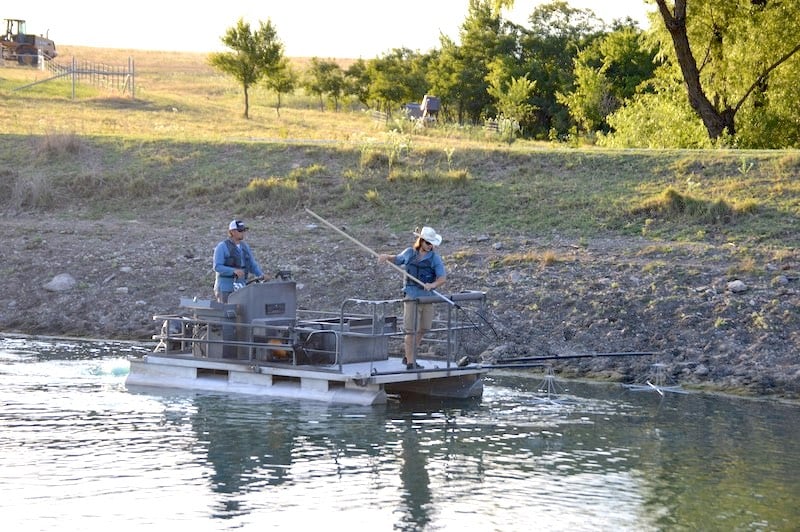Oftentimes when people think of electrofishing, they think about an electrofishing survey as just a means to see what species of fish they have or how specific populations in their pond or lake are doing.
While these community and population analysis surveys are one of the primary uses of electrofishing, many people often do not realize that there are other management techniques for which electrofishing can be used.
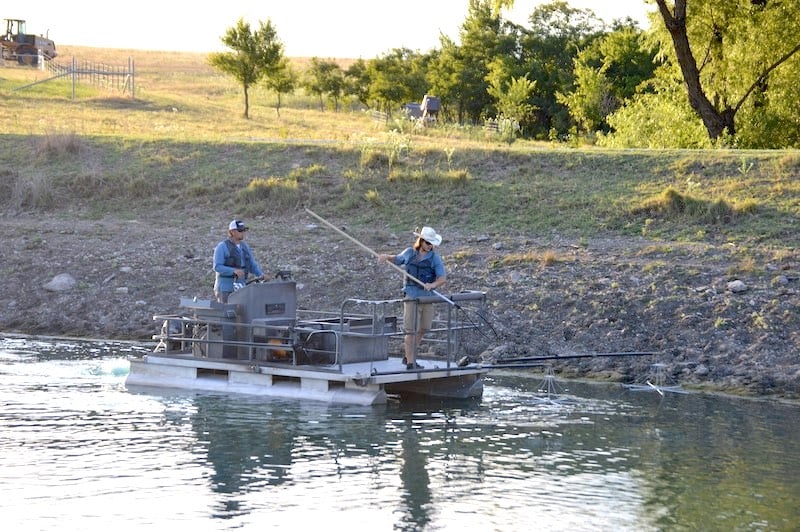
Electrofishing Aids the Removal of Unwanted Species from the Pond
Electrofishing is an efficient and effective method for removing unwanted species from your pond or lake. Biologists use electrofishing to easily target fish for harvest with far greater effectiveness than traditional fishing.
Catch rates per unit effort (CPUE) via electrofishing are far greater than those of hook and line collection methods.
This is especially important for species not easily caught on hook and line - like common carp and gar.
Remove Unwanted Species from Your Pond Whenever Possible
The most common species that we remove from ponds during an electrofishing survey are Common Carp, Bullhead catfish (Polys) and Green Sunfish.
These three different species can overpopulate a pond quickly and become a problem if they are not removed as soon as possible. In order to help keep your pond and the wanted fish in it in good condition, remove these unwanted fish any time you can.
What Species of Fish are Considered “Unwanted” in Ponds?
Common Carp
Common carp can be a real problem in your pond if they are not removed. They can overpopulate quickly because they do not have any predators, and they will also disturb the spawning nests of other fish such as bass and bluegill.
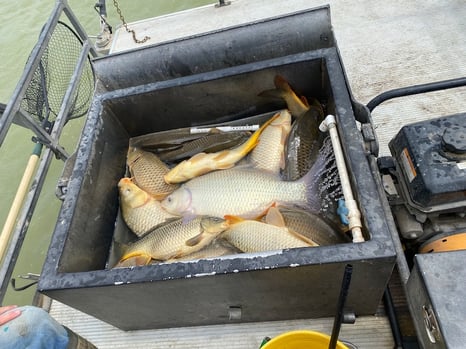
Whenever these carp disturb the nests of other fish, it significantly lowers the ability for the eggs and young fry to survive. This, in turn, lowers the population numbers of the fish you want to have in your pond.
Bullhead Catfish
Bullhead catfish can become a problem because they will compete with your bass for forage fish such as bluegill, shiners and minnows.
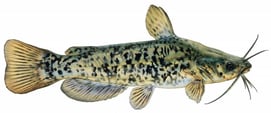
Bullhead catfish are also bottom dwellers, like other catfish, and will also make your pond muddy and turbid by disrupting the bottom of your pond.
Green Sunfish
Green Sunfish, like bullheads, can also compete with your bass for forage fish. This species, like bass, will eat anything they can fit into their mouths.
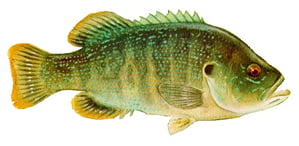
If not removed quickly Green Sunfish will overpopulate your pond and remove resources that your bass could be using to grow to a more desirable size in a shorter period of time.
Remove Overpopulated Bass from the Pond with an Electrofishing Survey
How Do I Know if the Bass in My Pond are Overpopulated?
If the bass in your pond become overpopulated, their growth rates will be reduced and you will have a lot of bass that are very similar in size - or “stunted”. If every bass you catch while fishing is around that 10-12 inch length and one pound in weight, you most likely have an overpopulation problem.
What Causes Overpopulation of Bass in Ponds
Overabundant predator populations cause a lack of available forage that result in underweight, poor conditioned fish.
Said another way: Too many bass + not enough bluegill or minnows = lots of skinny bass.
Fix Overpopulated Ponds with a Bass Harvest
The only way to keep predator populations at a sustainable level is by implementing an annual harvest to remove some of the fish.
Electrofishing is the Most Effective Way to Implement Bass Harvesting
As compared to fishing and removing fish from the pond manually, the most efficient, effective, and fastest method of completing these harvests is with electrofishing.
Once biologists have determined what size class of fish is overpopulated and needs to be thinned out they capture and remove accordingly from the pond.
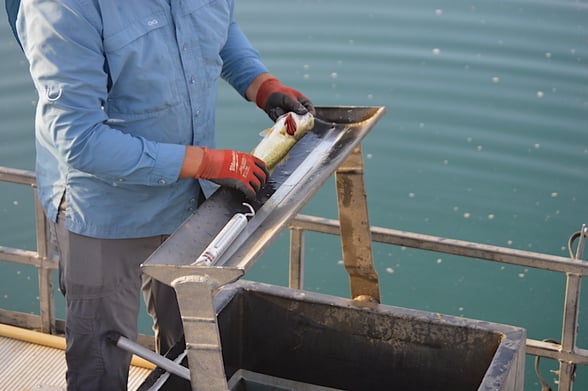
On a larger lake, what could take several months of fishing manually, the electrofishing survey would accomplish within one or two visits.
Keep Pond Fishing Fun, not Work
Choosing the more efficient and effective method of electrofishing allows you greater time to enjoy fishing and less time having to focus on what size and how many fishing you need to catch in order to keep your fishery sustainable.
Implement Annual Bass Harvests When Trying to Raise Trophy Bass in a Pond
Having an annual bass harvest is especially important if you are trying to raise trophy bass in your pond or lake.
Doing an annual harvest will help:
- Keep the bass population numbers within ideal ranges
- Provide plenty of forage to sustain improved growth rates each year
- Prevent your bass from becoming stunted
Trust Pond King for Professional Pond and Lake Management Advice
Each pond is its own ecosystem and each will be a little different in its own way. Before you decide on a bass harvest or a removal of an unwanted species, give Pond King a call or contact us. We’ll help you decide the best course of action for your pond.
We’ll see ya’ll down at the pond.


